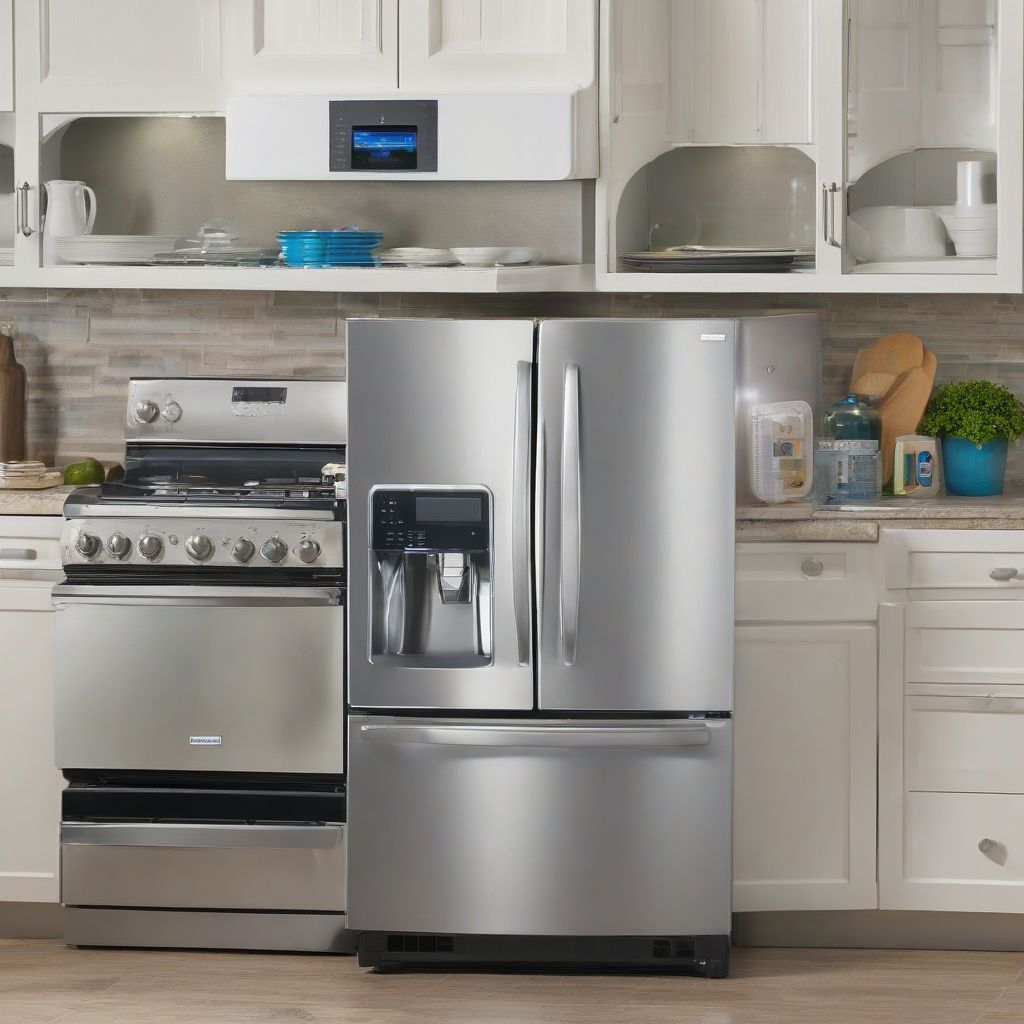Have you ever dreamed of shrinking your utility bills while simultaneously contributing to a greener planet? It’s a dream shared by many, and it’s more achievable than you might think! Finding energy-efficient appliances is a key step towards realizing this dream, saving you money and reducing your environmental footprint. This comprehensive guide will equip you with the knowledge and tools to navigate the world of energy-efficient appliances and make informed choices for your home.
Understanding Energy Efficiency Labels and Ratings
The first step in finding energy-efficient appliances is understanding the labeling system. In the United States, the EnergyGuide label is your primary resource. This label provides an estimated yearly operating cost and compares the appliance’s energy consumption to similar models. Look for appliances with lower operating costs and higher Energy Star ratings.
Decoding the EnergyGuide Label
The EnergyGuide label shows the estimated annual energy consumption in kilowatt-hours (kWh). Comparing this number across different models allows you to quickly identify the most energy-efficient options. The label also features a range showing the highest and lowest energy consumption for similar models, providing valuable context for your comparison.
The Power of the Energy Star
The Energy Star logo signifies that an appliance meets strict energy efficiency guidelines set by the U.S. Environmental Protection Agency (EPA). Energy Star certified appliances typically use 10-50% less energy than standard models, resulting in significant long-term savings.
Key Factors to Consider When Choosing Energy-Efficient Appliances
Beyond labels and ratings, several other factors contribute to an appliance’s overall energy efficiency.
Size and Capacity
Choosing the right size appliance for your needs is crucial. An oversized refrigerator will consume more energy than necessary, while a too-small washing machine may require multiple loads, ultimately increasing energy usage. Carefully assess your household’s needs and select appliances accordingly. “A client of mine,” recounts registered dietitian and meal prep coach, Sarah Miller, “insisted on a massive refrigerator despite living alone. After explaining how this impacted her energy bill, she opted for a smaller model and was amazed at the savings!”
Features and Technology
Modern appliances come with various features that can impact energy efficiency. Look for features like inverter technology in refrigerators and washing machines, which adjust motor speed to optimize energy consumption. Consider smart appliances that allow you to monitor and control energy usage remotely.
Maintenance and Usage Habits
Even the most energy-efficient appliance can become an energy hog if not properly maintained. Regular cleaning and maintenance can significantly improve performance and longevity. Similarly, mindful usage habits, such as running full loads of laundry or dishwasher, can optimize energy consumption.
Specific Appliance Considerations
Each appliance type has its unique energy efficiency considerations.
Refrigerators
Look for models with top-mounted freezers, as they tend to be more energy-efficient than side-by-side models. Consider features like automatic defrost and efficient door seals.
Washing Machines
Front-loading washing machines are generally more energy-efficient than top-loading models. Look for models with high spin speeds, which extract more water from clothes, reducing drying time.
Dishwashers
Choose dishwashers with energy-saving cycles and delay start options. Ensure the dishwasher is properly loaded for optimal cleaning and energy efficiency.
Ovens and Cooktops
Consider convection ovens, which cook food faster and more evenly, using less energy. Induction cooktops are highly energy-efficient, transferring heat directly to the cookware.
Long-Term Savings and Environmental Impact
Investing in energy-efficient appliances is a smart financial decision. The initial cost may be higher, but the long-term savings on utility bills more than make up for it. Moreover, by reducing energy consumption, you contribute to a healthier environment by minimizing your carbon footprint. As environmental expert Dr. Green often says, “Every kilowatt-hour saved is a step towards a sustainable future.”
 Energy Efficient Appliances
Energy Efficient Appliances
Conclusion
Choosing energy-efficient appliances is a win-win situation, offering both financial and environmental benefits. By understanding energy labels, considering key factors, and focusing on specific appliance needs, you can empower yourself to make informed decisions that will positively impact your wallet and the planet. Start by assessing your current appliances, researching available options, and taking advantage of rebates and incentives. Remember, every step towards energy efficiency contributes to a brighter, greener future. What steps will you take today? Share your thoughts and experiences in the comments below!



